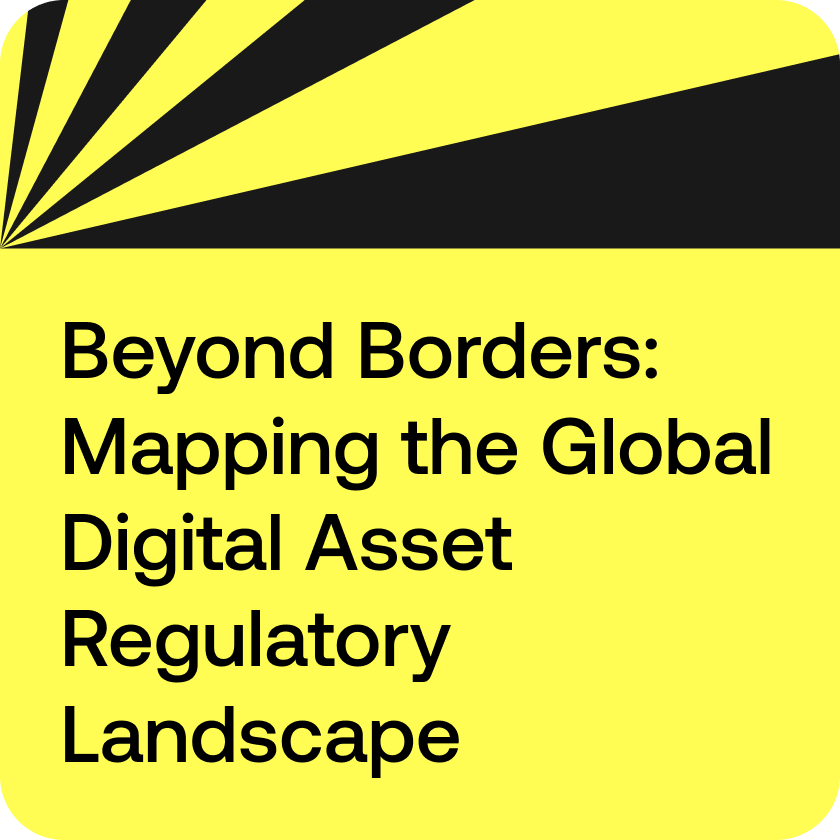ORIGINAL ARTICLE published in Finance UA December 30, 2021:
For the past few years, cryptocurrency has become a hot topic and while a lot of companies in the mainstream are yet to be involved, regulators are certainly paying attention to what is set to be the future of finance.
Case in point, the Financial Action Task Force (FATF), an independent inter-governmental body that promotes and develops policies to protect the global financial system against money laundering, terrorist financing, and other related threats has begun to usher in new guidelines for countries around the world in regards to cryptocurrencies.
While these guidelines are specific to cryptocurrency exchanges, it certainly signals a change in attitudes from regulators – something which could signal problems for companies that refuse to adapt. Such is the magnitude of this shift that is currently taking place, with a consensus in the industry showing the advent of expected shifts coming sooner or later. Eventually, mainstream companies will have to get involved with crypto one way or another.
Regulators are Watching
According to the guidelines provided by the FATF to curb crime in the world of finance, regulations over crypto transactions are set to cast a wide net with their effects being felt by a wide variety of entities, including those in the industry as well as those without. The guidelines by the FATF say that “Correspondent banking” does not include one-off transactions, but rather is characterized by its ongoing, repetitive nature.”
“VASPs (virtual asset service providers) should establish their control framework by defining and assessing the characteristics of their counterparty VASP relationships and whether they are undertaking activities similar to correspondent banking. This should include considering their competent authorities’ views on any identified high-risk counterparty VASP relationships,” the guidelines add.
The FATF is not the only regulatory body that is paying attention to crypto. In Europe, the European Commission presented an ambitious package of legislative proposals aimed at strengthening the EU’s anti-money laundering and countering terrorism financing (AML/CFT) rules. The proposed reforms to the rules are set to affect the entire crypto sector even though only certain categories of crypto-asset service providers are included at the moment.
In a press release announcing the proposed legislative reforms, the regulator mentioned that the measures taken “greatly enhance the existing EU framework by taking into account new and emerging challenges linked to technological innovation. These include virtual currencies, more integrated financial flows in the Single Market, and the global nature of terrorist organizations.”
With these regulatory amendments set to be introduced, full traceability of crypto-asset transfers will be implemented to prevent and detect the use of crypto in money laundering or terrorism financing.
New Opportunities Means Increased Risks
One of the reasons for this move by regulators across the globe is the sheer scale of opportunities that come with crypto. In early November, for instance, the cryptocurrency market rallied to all-time highs hitting a total market capitalization value of $3 trillion on the backdrop of Ethereum and Bitcoin soaring in terms of price. In the past year alone, the global crypto market cap has grown fivefold with an ever-changing list of top 10 coins that each compete for the attention of investors in the industry.
According to experts, the next three years will see every large bank, securities firm, or company (small or big) actively involved in selling, trading, or providing crypto-related services.
At the moment, Americans lead the adoption wave with statistics showing that 46 million Americans own bitcoin, with another 70 million owning registered blockchain wallets. In addition, countries such as El Salvador have already legalized Bitcoin, with other jurisdictions pledging to work with cryptocurrency firms by offering a better legal framework for crypto-based companies. With this level of growing adoption, regulators from India (RBI), Australia (AUSTRAC), the US (SEC), and the UK (FCA) are paying even closer attention, intending to formulate rules that will protect investors.
Even so, some are still wary of the industry’s volatility and lack of mainstream adoption or regulation, others see it as a new frontier set to be a trillion-dollar industry. And like any emerging industry, a lack of regulatory oversight or structure is set to present a plethora of financial risks from all corners.
The Future of Finance is in Digital Assets
With all the risks and opportunities at hand, the truth is that no one knows for certain where crypto is headed. However, if recent developments are anything to go by, digital assets are setting up a foundation for the future of finance.
Throughout the year, for instance, NFT sales soared especially in the digital art scene and experts predict that this is only the beginning as NFTs are set to be used in the next evolutionary step of the internet (metaverse). According to predictions, NFT sales might surge to $17.7 billion by the end of the year, yet they only amounted to sales of $41 million in 2018.
Decentralized finance is also on the rise with its effect set to shake up multiple industries setting up the sector as one of the most impactful developments in the emerging digital economy.
From stablecoins to central bank digital currencies (CBDC’s), the narrative remains highly optimistic, with early movers reaping the benefits in what is set to be a race to issue the world’s first CBDC.
At Crystal Blockchain (a provider of blockchain analytics and crypto transaction monitoring for over 150 organizations worldwide) the numbers speak for themselves. Crystal statistics show a $131 billion monthly transaction volume from centralized exchanges and another $111 billion from decentralized exchanges as of November 2021.
On a Positive Note
To prove that the cryptocurrency or digital asset economy is anything but a fad, top jurisdictions such as that of the US have started to pay attention to formulate rules that will protect investors.
All over the world, regulators are slowly reforming to include crypto assets as a new asset class, with definitions and guidelines being offered to companies in the sector. Ukraine, for instance, is gearing up to become a fully digitized economy. As institutional investors enter the market, it is clear that crypto is here to stay.
What This Means for Companies
With this in mind, it’s important for companies who don’t currently support crypto to at least familiarize themselves with the technology and start thinking about how they can get involved down the line.
Already, an increasing number of companies and businesses across the globe are actively using digital assets for various investment opportunities and financial operations. An estimate from late last year shows that more than 2,300 businesses accept bitcoin. However, newcomers need to note that, as with any frontier, there are unknown risks as well as strong incentives.
While this presents a dilemma for companies looking to get involved, solutions such as those provided by Crystal Blockchain help mitigate the risks. Crystal Blockchain does this by streamlining the Know Your Transaction (KYT) and Anti-Money Laundering procedures for meeting international compliance standards. By working closely with companies in the crypto space as well as with governments and law agencies across the globe, Crystal Blockchain can provide a set of tools that enable businesses to operate safely in the crypto space.
This gives businesses entering the crypto space ample time to familiarize themselves with the technology and to explore partnerships with companies that are already established in the space.
As the industry matures, it is clear that a variety of use cases and applications for crypto will surface. Constantly innovating, the cryptocurrency sector will continue to proliferate and change the way people do business in emerging markets. Companies that don’t get involved now might miss out on a huge opportunity down the line as they look to expand their operations into new international markets.




